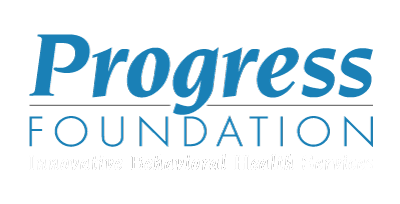Our Services
Referral Process
Depending on a client’s location, the referral process can vary slightly. Progress Foundation works directly with clients, but also collaborates with municipal mental health providers to provide alternatives to institutionalization or incarceration.
Referrals to San Francisco Programs
Assessment, Triage and Advocacy: Clients in San Francisco work through the Mental Health Triage coordinator to manage referrals and perform any necessary triage services. Referrals to Progress Foundation generally come through emergency and urgent care services in public and private hospitals, San Francisco Community Behavioral Health Services outpatient clinics, and San Francisco’s residential treatment programs. The Triage Team offers an array of evaluation, referrals, triage, training and clinical consulting services. For more information, please contact our Clinical Department at (415) 861-0828 x 138.
The ultimate goal of the Triage Team is to serve as an effective navigator of service offerings as well as an advocate for clients and their families seeking non-institutional and comprehensive social rehabilitation services and alternatives.
Supported Living Programs: Please call the Supported Living office and ask for the Director or Assistant Director at (415) 752-3416. The office’s fax number is (415) 752-3483.
Referrals to Napa Programs
For referral to the Napa Programs (Progress Place, Bella House, and the Napa Supported Living Program), please contact the North Bay Clinical Director at (707) 255-9028.
Referrals to Sonoma Programs
For referrals to our Sonoma programs (Parker Hill Place, Progress Sonoma or Harstad House), please contact the North Bay Clinical Director at (707) 255-9028.
Referral Process
Depending on a client’s location, the referral process can vary slightly. Progress Foundation works directly with clients, but also collaborates with municipal mental health providers to provide alternatives to institutionalization or incarceration.
Referrals to San Francisco Programs
Assessment, Triage and Advocacy: Clients in San Francisco work through the Mental Health Triage coordinator to manage referrals and perform any necessary triage services. Referrals to Progress Foundation generally come through emergency and urgent care services in public and private hospitals, San Francisco Community Behavioral Health Services outpatient clinics, and San Francisco’s residential treatment programs. The Triage Team offers an array of evaluation, referrals, triage, training and clinical consulting services. For more information, please contact Kimberly Taylor (415) 722-1983.
The ultimate goal of the Triage Team is to serve as an effective navigator of service offerings as well as an advocate for clients and their families seeking non-institutional and comprehensive social rehabilitation services and alternatives.
Supported Living Programs: Please call the Supported Living office and ask for the Director at (415) 752-3416. The office’s fax number is (415) 752-3483.
Referrals to Napa Programs
For referral to the Napa Programs (Progress Place, Bella House, and the Napa Supported Living Program), please contact the North Bay Clinical Director at (707) 255-9028.
Referrals to Sonoma Programs
For referrals to our Sonoma programs (Parker Hill Place, Progress Sonoma or Harstad House), please contact the North Bay Clinical Director at (707) 255-9028.
A Continuum of Care
At Progress Foundation, we believe that clients with mental-health issues (often co-occurring with addiction issues) recover and thrive best in a well-supported, community-centric environment. That’s why our team offers a selection of programs which address a range of care levels, from immediate intervention through longer-term support.
Mental Health Triage Team
San Francisco clients are evaluated by our specialized Triage Coordinators, who provide an initial evaluation in the local inpatient hospitals and jail settings. The Triage Coordinator acts as an advocate which ensures that clients who may benefit from our services have an effective option to avoid involuntary hospitalization. For referrals or information, please call (415) 722-1983.
Dore Urgent Care Clinic
This San Francisco-based facility is available to individuals experiencing an escalating psychological crisis which, if not immediately addressed, may result in involuntary detention or hospitalization. Dore Urgent Care Clinic provides assessment and triage in a supportive, community-based setting that is fundamentally different from a hospital-based psychiatric environment. Learn more about Dore Urgent Care Clinic and referral procedures by phoning (415) 553-3100.
Crisis Residential Treatment Programs/Acute Diversion Units (ADUs)
Progress Foundation operates a half-dozen Crisis Residential Treatment Programs in San Francisco, Sonoma, and Napa counties. These intensive, 24-hour therapeutic environments provide diversion from and an alternative to psychiatric, in-patient confinement in a county health facility. ADUs are available to clients with a major mental-health diagnosis who may also have a co-occurring substance-abuse or physical-health challenge.
These programs are run out of homes located in residential neighborhoods and offer clients a discreet, stigma-free setting for up to two weeks at a time. ADUs are ideal for helping a client stabilize, re-engage with a household community, and work on short-term goals in their custom treatment plan. An interdisciplinary team of psychiatrists, nurse practitioners, and residential therapists provides intensive treatment addressing all aspects of physical and mental health.
Transitional Residential Treatment Programs
These programs represent the next step in Progress Foundation’s continuum of care—longer term (three months to a year) residential support appropriate for maintaining stability and working on long-term goals. Clients are fully integrated into household life and, where appropriate, also participate in job-training, school, work, or day treatment programs. The ultimate goals for these programs include developing critical social skills and coping strategies, finding housing, and securing ongoing services and supports in preparation for discharge from the program.
Progress Foundation’s transitional programs also include groundbreaking, specialized facilities for seniors, clients leaving long-term institutionalization, and mothers seeking to regain or maintain custody of children.
Cooperative Living Apartments
The cooperative living apartments (called the Co-ops) are apartments that are leased or owned by the agency and rented by four to five residents who share the responsibility for rent and utilities. Residents receive individual case management services and attend regular house meetings facilitated by a case manager to assist clients in the coordination of maintaining a communal household. Clients work closely with their case managers to determine the type and frequency of services they receive. Because these cooperative living apartments are scattered across our treatment area, they afford residents privacy and stability without stigma.
Residents are referred into the Co-ops by a service provider.
Independent Living Apartments
Progress Foundation has three independent living apartment buildings in San Francisco and two in Napa, with some units in select buildings set aside specifically for families. Independent living apartments are for individuals who require moderate—yet ongoing—support in order to attain maximum independence. Residents have access to case management services, but participation is not a requirement for maintaining residence. Each building has a resident manager to respond to facility needs and help maintain a safe, clean environment. Residents pay 30% of their income for rent. Waiting lists are maintained in accordance with HUD regulations, with notification to the community when a list is open and accepting applications.
IPCOM Project
Interprofessional Primary Care Outreach for Persons with Mental Illness
Many clients referred to Progress Foundation programs have physical health conditions that have gone undetected or untreated due to lack of access to primary health care. The IPCOM Project (Interprofessional Primary Care Outreach for Persons with Mental Illness) is a nurse-managed primary care service established in 1995 as a partnership between Progress Foundation and the School of Nursing at the University of California, San Francisco. UCSF Nurse Practitioners and Nurse Practitioner students work collaboratively with Progress staff, consultant psychiatrists and psychiatric Nurse Practitioners, and pharmacist faculty and pharmacy doctoral students to provide health screenings, treat general illnesses and injuries, and support health education on topics such as nutrition, smoking cessation, and diabetes management within a mental health residential treatment framework. IPCOM is nationally recognized as an innovative outreach model to deliver nurse-managed health care services in residential mental health facilities, and is a cornerstone for clinical training in integrated primary and behavioral health care.


